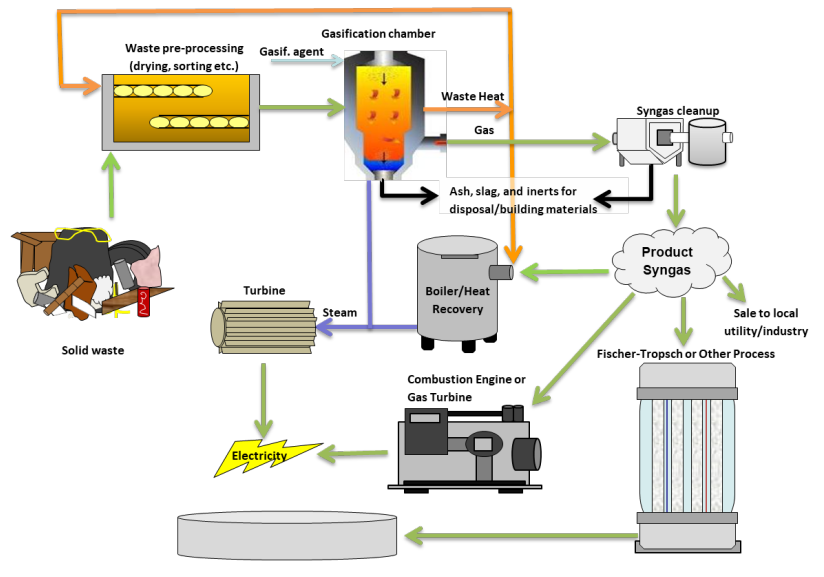Gasification is a thermochemical transformation of carbon-based feedstock with a limited amount of
air, pure oxygen, air enriched with oxygen, or steam injected. As with pyrolysis, oxygen inputs and
resulting oxidation within the gasification system are controlled, but in gasification processes, air and
oxygen inputs are introduced in variable quantities.
Gasification requires extremely low MSW moisture content (<10%); as a result, MSW with a high
moisture content such as food waste may need to be segregated or dried prior to processing. Prior to
gasification, MSW is sorted to separate system inputs from unusable (typically recyclable) materials
such as glass, metal, inerts, and contaminants. In traditional gasification, process temperatures
range from 1,450 to 3,000°C.
Syngas and some ash/slag are produced during gasification. After production during gasification,
syngas can be cleaned, compressed, and transformed through other catalytic processes into other
industrially useful chemicals and fuels (methanol, ethanol, gasoline olefins, diesel waxes, etc.). As
with pyrolysis, varying parameters such as oxygen levels in the gasification process can result in
varying proportions of generated solid, liquid, and gas outputs
